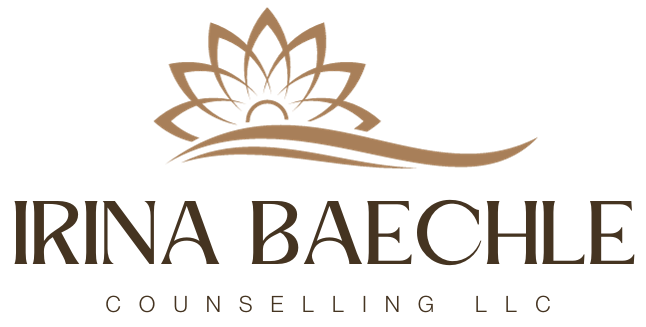Questions to ask a relationship therapist when your partner won’t go to counseling
Questions to Ask a Relationship Therapist When Your Partner Won’t Go to Counseling
Couples counseling should help you and your partner reach your personal objectives for seeking therapy, improve your understanding of the dynamic/”the cycle” and communication patterns, and better adjust to the requirements of your relationship.
During relationship therapy, most couples develop clarity about the mutual expectations and the kind of relationship they want to achieve.
Marriage counseling shows the best results when both partners are willing to participate and motivated to change. However, your partner may not be ready to go to couples counseling in our Raleigh NC or Wake Forest NC office for one reason or another. He or she may be resistant because they think therapy won’t be helpful, they fear being vulnerable, or be uncomfortable discussing their intimacy in front of a stranger.
Whatever the reasons, if your husband refuses to work on marriage (often times it is the husband), this can be disappointing and discouraging and make you wonder whether you should still give marriage counseling without spouse a shot or not. So, here are some of the questions that you may want to ask a relationship therapist when seeking individual therapy for relationship issues.
“Can I still come without my partner to your Wake Forest counseling office?”
“Should I still seek counseling if my partner won’t go?”
I often hear this question from my clients.
And the answer is always yes.
When couples wait for too long to seek therapy, it often happens that one partner wants to go and the other does not. As a result, some couples therapists offer counseling for one partner. You can still benefit from marriage counseling for one, even if your partner is not ready or doesn’t want to go.
Going to individual therapy for relationship issues allows you to address your relationship struggles, openly share your concerns, delve on triggers of relationship anxiety and gain a better understanding of what a healthy relationship looks like. There may also be trust issues or vital information that you can only share without the partner present.
Is Marriage Counseling without Spouse Worth It?
Yes, it is, because change is usually a chain reaction. In other words, one person can set in motion positive changes in a relationship. Of course, both partners are essential to a relationship. However, to start a positive change in a relationship, all it takes sometimes is one partner who is willing to change their actions and behavior.
Couples counseling for one can help you identify and address the primary problem. For example, you may struggle with commitment issues that stem from experiences in your unhealthy family.
If anything, it is worth going to couples therapy alone just for your peace of mind. Whether your relationship works out or you end up separating, you will at least know that you tried to improve and save the marriage.
Is Individual Therapy for Relationship Issues Effective?
While couples counseling gives the best results when both partners are willing to participate, you should still go even if your partner refuses to. Relationship therapy for one can be as effective because it helps you to focus on changing yourself rather than your partner. Couples counseling for one can help you explore your deepest emotions and needs, and help you set realistic expectations from your relationship. Keep in mind that, even if your partner does agree to couples counseling, you cannot change each other. The change needs to start within you, and couples therapy for one may be a safe place to start that change.
How Are You Going to Help Me?
I am going to use emotionally focused individual therapy (EFIT) to help increase your emotional awareness and identify important information your emotions provide.
EFIT is Emotionally Focused Model applied to individuals. The main premise of this therapeutic approach is that emotions are essential to our identity. Emotions guide our decisions and life choices.
Becoming aware of your emotions can help you better cope with your negative emotions and alleviate the negative effects of damaging emotions such as shame, guilt, resentment, or anger.
How is Relationship Counseling for One Different from Couples Counseling?
Many people believe that, in relationship counseling for one, pressure for relationship change is solely on one partner. My clients often ask is it really possible to do couples therapy with just one partner.
Couples therapy for one is mostly focused on intrapsychic processes. Relationship counseling for one will help you gain a better understanding of yourself, your family, and how your childhood experiences have affected your present feelings, thoughts, and behavior. from couples counseling.
If you seek relationship therapy alone, you will be able to discuss your relationship issues and establish a relationship with a therapist without alienating your partner.
On the other hand, in couples therapy, the couple is the client, and the primary focus is the relationship. Couples therapy focuses on observable communication patterns and connections between partners. Change in a relationship is brought about by changing interaction patterns between you and your partner.
Summary
Couples therapy is intended for couples. It may happen, however, that your partner won’t go to counseling, which leaves many questions about the usefulness and effectiveness of couples therapy open. Even unaccompanied by your partner, you should still go to relationship counseling. However, discuss your doubts about relationship counseling for one at the beginning of counseling to get a better idea of its effectiveness.
I hope this information helps you to better understand the benefits of individual therapy for relationship issues. If you have any questions, do not hesitate to give me a call at (703) 347 3200 and schedule an appointment here in my Wake Forest office.

